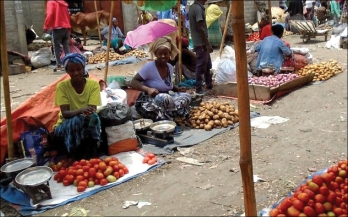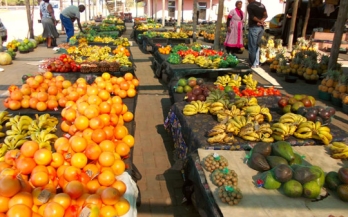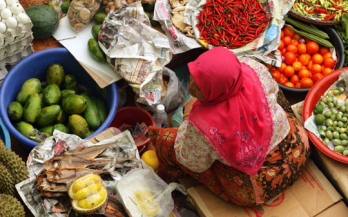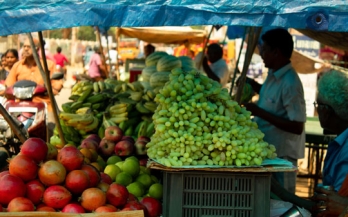To make sure Beira’s low-income population can continuously access affordable safe nutritious fresh foods and economic opportunities in traditional urban food markets, GAIN with funding from the government of the Netherlands supported the city of Beira by upgrading three fresh food markets.
Today, more than 125 countries have mandatory food fortification programmes. Food fortification requires a "premix" – a mixture of vitamins and minerals – that can then be added to various staple products.
EatSafe conducted three data collection activities, including interviews, observations, and a randomized experiment, to understand consumers’ and vendors’ food safety knowledge, attitudes, and practices in Hawassa, Ethiopia.
Gallup, Harvard University, and the Global Alliance for Improved Nutrition teamed up to overcome this challenge by initiating the Global Diet Quality Project. Through this project we have created a new approach that enables countries to track diet quality year to year, seasonally, or even more frequently.
The Global Diet Quality Project offers a new approach that enables countries to track diet quality. The project’s Diet Quality Questionnaire (DQQ) allows users to investigate both diet adequacy and diet components that protect against or increase risk of noncommunicable diseases (NCDs)
EatSafe conducted a Story Sourcing activity, or the semi-formal process that uses journalistic techniques to gather stories directly from the audience of interest, to gather stories from traditional food market vendors and consumers in Hawassa, Ethiopia.
The Lancet Global Health article is the first evidence-based global estimation of micronutrient (vitamin and minerals) deficiencies that systematically analyzed data on population-representative surveys from preschool-aged children and women of reproductive age.
GAIN, BRAC, SMC, Renata, a Bangladeshi pharmaceuticals company, icddr,b and the Children’s Investment Fund Foundation (CIFF), set out to evaluate whether such a programme could reach those who are vulnerable, whether they were impactful and whether they were good value for money compared to other routes to improved nutrition outcomes.
GAIN, Unilever, and the Sustainable Trade Initiative (IDH) saw an opportunity to improve the nutrition and health of farmers, workers, and their families in supply chains, whilst working to increase supplier and worker satisfaction, productivity and brand loyalty.
GAIN, Unilever, and the Sustainable Trade Initiative (IDH) saw an opportunity to improve the nutrition and health of farmers, workers, and their families in supply chains, whilst working to increase supplier and worker satisfaction, productivity and brand loyalty.










